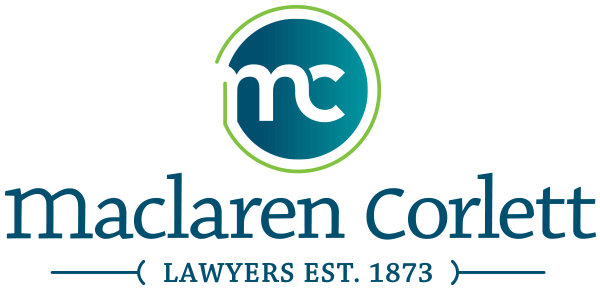Whether you are buying or selling your first home or your fifth home, you can be overwhelmed by the process involved in a real estate conveyance. The general principals will remain the same for each transaction you are involved in. However, your experience can vary considerably depending on what speed bumps pop up in the road. So how can you avoid those speed bumps that might slow down or derail your real estate transaction? Here are some helpful hints from your real estate lawyer.
Involve your real estate lawyer from the beginning.
Even before you have a signed agreement of purchase and sale, you should contact your lawyer. Tell them you are considering buying or selling a home and that you want them to act on your behalf when an agreement is finalized. Your lawyer can review your agreement of purchase and sale before you sign. He can advise you regarding what conditions should be included in the agreement. If you’re not going to have your lawyer review the agreement before you sign, you should provide your lawyer with a copy of the agreement as soon as possible after it is signed. In addition, if your agreement of purchase and sale contains conditions, you should advise your lawyer immediately that a condition was waived or fulfilled.
Your real estate agent may tell you they will provide your lawyer with signed documents. Although this is generally the case, your agent may not always do this in a timely manner. If you receive a copy of a signed document, make sure you forward it to your lawyer. It is usually as simple as forwarding an email but it can help avoid unnecessary delays and keeps your real estate lawyer involved and informed.
Try to avoid buying and selling on the same day.
Try to close your new purchase at least a few days before your sale to avoid delaying one or both transactions. Your real estate transaction(s) is part of a chain of real estate transactions. They all rely on one another to be completed. If you are buying and selling on the same day, your lawyer cannot complete your purchase until he has completed your sale. What you may not realize is that the person buying your home is often waiting to complete the sale of their home. Real estate transactions are connected. The more transactions that have to be completed on a specific day in order for your lawyer to complete your transaction, the greater the risk that one will not be completed and the chain will be broken.
Avoid the extra stress buying and selling on the same day brings. If possible, complete your transactions on separate days. If financing is an issue, there are options available to help you bridge the financial gap between closings.
There are no guarantees respecting the timing of closing.
There is no guarantee that: 1. Your purchase/sale will close at any certain time on the day of closing; or 2. That your purchase/sale will even close on the day of closing. You should expect to have to wait until 4:30pm or 5:00pm on the day of closing to get the keys to your new home, if you are buying and you should expect that the proceeds of the sale of your home, if you are selling, may not even be available to you until the day after your sale closes.
Booking a moving truck on the day of closing is not advisable. You may not have access to your new home until late in the day. You may therefore have to pay extra time for the moving truck or for furniture storage if there are delays. This is another reason why buying and selling on the same day should be avoided.
Arrange any mortgage or bridge loan financing early.
Arrange your mortgage or other financing as soon as possible after you have a firm agreement of purchase and sale. Your real estate lawyer has no control over the rates and charges agreed to between you and your mortgage company. However, if your mortgage is arranged early and your lawyer receives your mortgage instructions early, there will be plenty of time for you to review them to ensure they accurately reflect the rates and charges you discussed with your mortgage company. If they don’t, there will be time for those instructions to be amended without delaying your closing.
If your lawyer has your mortgage instructions early documents can be prepared well in advance of your closing date. This will help avoid any delays a missing document may cause.
Arrange your home-owner’s insurance early.
Many clients don’t realize that they need to have their home-owner’s insurance set up before they purchase a home. Your mortgage company requires evidence of your home-owner’s insurance before they will provide the mortgage funds to your lawyer. If you are purchasing a home for the first time, arrange your home-owner’s insurance early. Provide your lawyer with the contact information for your insurance broker. If you are an experienced home purchaser, you should notify your insurance broker of the change in your home-owner’s insurance. Your broker can then provide an updated policy binder to your lawyer.
Some things your lawyer just can’t do for you.
When it comes to a real estate transaction, there are some things your lawyer just cannot do for you. One of those things is setting up or changing your utility accounts. You are responsible for contacting all your utility providers to notify them of your move. You can do this at any time before your closing date and you should do it at least a week before the closing date. This also applies to your property tax account. You should contact the municipality to which your property taxes will be paid and advise them you are purchasing/selling a property. If your mortgage company is paying your taxes, you should ensure the municipality has your mortgage company’s information.
If you found these tips helpful, check out this series of blog posts specific to first time home buyers and watch out for future blog posts containing more helpful hints specific to home buying, home selling, buying a condominium unit and mortgages.
This blog highlights certain areas of a real estate transaction that can result in delays and provides tip on ways to avoid those delays. It is not legal advice. It does not replace specific legal advice to you.

